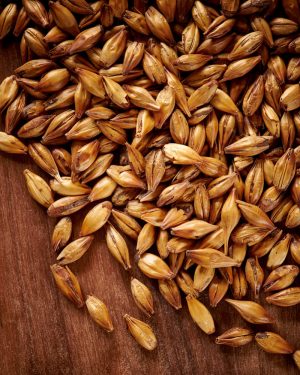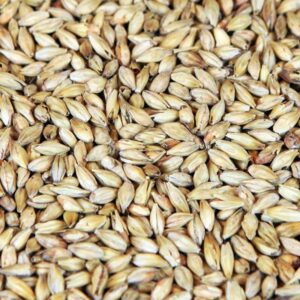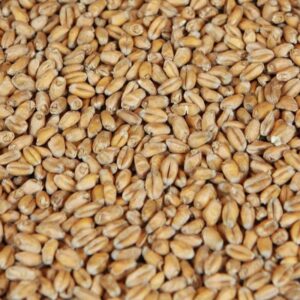
Oats have a long tradition as a specialty ingredient in beer, although few breweries made much ado about oats outside of oatmeal stouts until the last several years. But the surge of popularity of oats in the craft brewing world, starting with stouts and then exploding with hazy IPAs, has made oats a staple in many homebrewers’ grain bins. There are certain qualities to oats that make them distinct from the more “traditional” cereal brewing grains, namely wheat and barley.
Basics of Brewing Oats
We can break down the oats we use in brewing into two broad classes: Malted and unmalted. Starting with the raw cereal grain, most oats that we use in brewing will be processed in some way, whether they are malted or not. Most unmalted oats have been processed to remove their protective hull or husk layer (flaked torrified oats are the one exception). The de-husked cereal oat is now known as oat groat and we officially call the grain naked. Malted oats come both with and without husk. Most products will indicate they are naked if the husk has been removed. Rice hulls may be desired if naked grains are included in your mash, especially if the naked oats exceed 10% of the mash.
Unmalted Oats

Unmalted oats can be purchased in the cereal aisle of a grocery store as either steel-cut, old-fashioned (rolled), or quick oats. At the homebrew store, we most commonly see flaked oats as the unmalted option. All of these forms can be used in brewing, but homebrewers have to understand that in order to get sugar from them, they need to be mashed with base malts. The starch that unmalted oats contain will remain unusable to yeast unless enzymes can start breaking them down.
The steel-cut oats are oat groat that has been chopped into smaller nuggets. If you are using steel-cut oats, you probably want to run them through a grain mill to crush them more and expose more starch to the mash’s enzymes. The other three common forms of unmalted oats are all smashed by rollers: Flaked, old-fashioned, and quick oats, will all act fairly similarly for brewers. Quick oats will be flattened more so than the flaked or old-fashioned, but there is no harm in running any of these through a grain mill. In fact, increasing the surface area of the oat may positively impact your mash efficiency. Studies have shown that oat starch is a little more difficult to access than more common brewing grains and the increased surface area may help with this issue.
Finally, while unmalted oats can be purchased at your grocery store, there is a reason that you may opt for buying flaked oats at your homebrew supply shop. Oats high in fat content have been shown to be highly susceptible to rancid characteristics and bitter flavors when processed. Flaked oats purchased from maltsters are specifically selected to minimize this issue.
Malted Oats

Malted oats means that they have gone through the malting process, allowing them to potentially be enzymatically active, meaning they can convert the starch into sugars. But just because they’ve been malted doesn’t mean that they are enzymatically active. Plain oat malts do indeed contain the enzymes required to break down the starch stored in grains during a normal mash period of 60 minutes. Oat malts also do still contain their husks, helping brewers who sparge their beer.
Another popular malt used today is crystal oat malt, like Golden Naked Oats (GNO) malt from Simpsons. Crystal oat malts may or may not contain husks and they do not need to be mashed. The sugars in crystal malts are already formed and ready for yeast to consume. Finally, both forms of malted oats can benefit from a tighter milling gap than standard wheat and barley malts due to the thinner nature of the grain.
Oat’s Contributions
Depending on which products you use, oats can add a range of different flavors and body building components to a beer. Oats in general are rich in beta-glucans, proteins, and fatty acids when compared to barley. The beta-glucans along with other components are well known to help build body in beer, but when it comes to mashing they can cause headaches in the form of slow run-off from the mash tun. There are several tricks to avoid this headache, but the addition of some rice hulls to your mash is the easiest solution.
While generalities abound about the flavor contributions oats impart on a beer, they can be distilled down to a few key elements. Unmalted oats are going to be the most neutral flavor-wise and are more known as a body-building component as well as potential contributor of some hazy compounds for styles like witbiers and hazy IPAs. Malted oats are more known to add a velvety, creamy texture to beers. This can help by cutting the astringency and sharpness of beers like porters and stouts. Crystal oat malts will provide a slight nutty character to a beer, contribute to a creamier body, and smooth mouthfeel as well.
Another popular technique with flaked oats is to toast them until browned and smelling like oatmeal cookies. This same characteristic can make its way into a beer so it has been common in many recipes for beers like brown ales, winter warmers, and porters.






Reviews
There are no reviews yet.